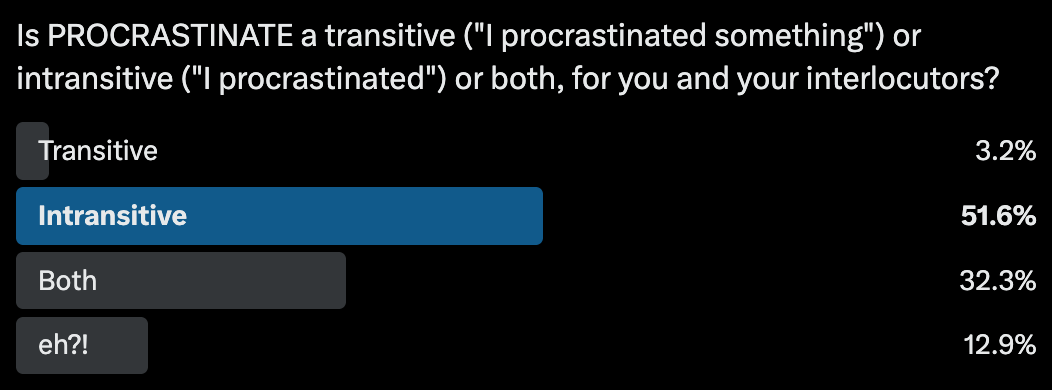Transitive Procrastinate in International English
I'm not a native English speaker, and I do not have native-speaker intuitions when it comes to English. But when I learnt English, one thing stuck with me: you can't procrastinate something. The verb "procrastinate" is intransitive – like "arrive" or "sleep", it doesn't take a direct object. You just procrastinate. Full stop.
But lately, I've been hearing something different. In conversations with other English speakers – especially non-native ones – I keep encountering phrases like "I procrastinated the homework."
This got me thinking: is "procrastinate" undergoing a shift? It seems likely that non-native speakers, having internalised the verb into their idiolects in a different configuration, are now using it as transitive in everyday speech.
To test my hunch, I ran an informal poll on X (fka Twitter). The results confirmed my suspicion: a sizeable proportion of respondents accepted "procrastinate" as a verb that works both ways – transitive and intransitive.
That's just how language works, isn't it? Especially when it's being adopted and used by millions of non-native speakers. It morphs, evolves, and becomes something new. What we're witnessing with "procrastinate" is language evolution in real time.

